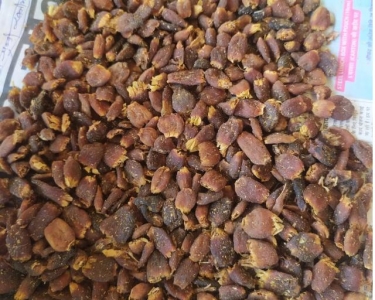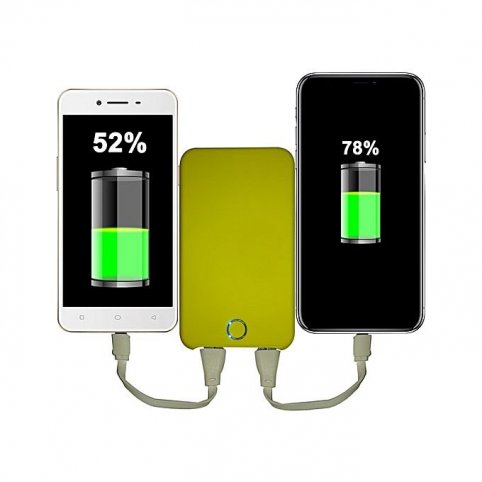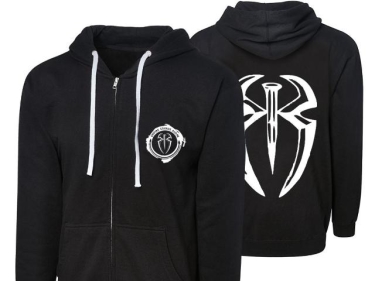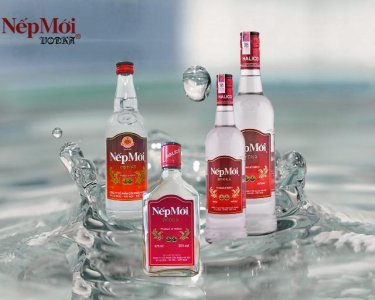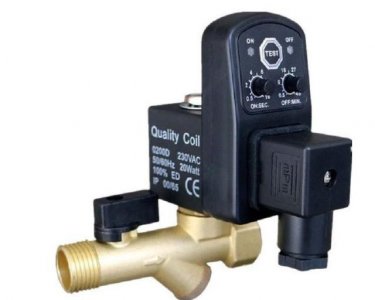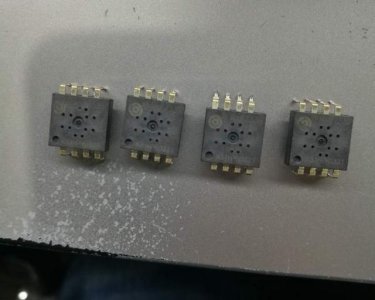Live animals
Couldn't find the product you want?
Fill out this form to request the product.
Products You May Like
Export from Liberia
"Export in Liberia" Department is your best source to find and connect with Liberian Exporters, Liberian Manufacturers and Liberian Suppliers. Discover a vast variety of products made in Liberia and purchase them online from the comfort of your home or any other place.
Lying on the Atlantic in the southern part of West Africa, Liberia is bordered by Sierra Leone, Guinea, and Côte d'Ivoire. The most important products of Liberian export include rubber, diamond, timber, iron, coffee and cocoa. The country mostly trades with India, the US, Poland, Germany and Belgium.
Export Portal provides you with all the exported products from Liberia. It is easy to find, buy and deliver the products to your address on our website. Connect directly with Diamond Sellers, Rubber Manufacturers, Timber Traders, Iron Dealers, Coffee Exporters and Cocoa Farmers.
Import to Liberia
Liberia imports stand at US $7.143 billion, according to the recent estimates. The country ranks 96 in the world in terms of total import volumes. Being a non-oil producing nation, petroleum products account for the largest share of imports. The country also imports chemicals, heavy machinery, manufactured goods, transportation equipments and food products.
Liberia has healthy trade relations with South-East Asian countries. A large portion of the imports come from those regions. South Korea is the major importer from Liberia, followed by Singapore, Japan, China and Taiwan.
Liberia is a country richly endowed with mineral resources and a favorable climate for agriculture but there are many categories of supplies it has a need for. You can find all of those on our site. Food supplies, transportation machinery, different chemicals from international exporters are displayed on Export Portal for your convenience.
Check Out Export Portal: A Site That Lets You Export Live Animals
If you are looking to buy and export animals, then you came to the right place! Export Portal's Live Animals Department is an online marketplace for sellers and buyers of any livestock. We work to contribute to the live export industry, which brings many economic advantages and other benefits to countries that rely heavily on livestock imports. In fact, in just Australia alone, this industry contributes roughly $1.8 billion to the country's GDP each year. Moreover, it also ensures food security while helping people meet their protein needs as well.
Finding the Right Animal
We feature a wide range of pigs, cows, sheep, goats, horses, rabbits and hares, turkeys, bees, and fish for sale. An increasing number of American, Australian, German, South African, Argentinian, and Italian farmers and companies are advertising their livestock with Export Portal, portraying just how effective and helpful our site is.
To help customers make more informed purchasing decisions, our site lets users narrow down their searches by the age, breed, and sex of the animal. If you are feeling hesitant to shop on our site and want more detailed information, make sure to check out our seller ratings and reviews, which are written by our buyers and customers. We also collaborate with hundreds of trusted international shipping companies that arrange the transport of all kinds of animals and birds to any country in the world.
Online Shopping is More Simple with Export Portal
Export Portal is an ideal site for everyone who is an avid online shopper. Our convenient options make it easy to find and buy whatever you are looking for. Our seller network from all over the world has everything you need, and our customer support team will make sure you can find it. Our wide assortment of products will be sure to provide you with the best shopping experience. Make sure to check out our site and items today!
Customs requirements of Liberia
Liberia's Ministry of Commmerce and Industry
Website: http://www.moci.gov.lr/
Email: info@moci.gov.lr
Telephone: +231 020721 5058, +231 77 08 06 70
Address: Ministry Of Finance, Broad Street, Monrovia, Liberia
Liberia is a country in West Africa. Liberia is a founding member of League of Nations, United Nations and the Organisation of African Unity. Liberia gained observer status with the World Trade Organization in 2010.
Liberia’s major trading partners are China, the European Union, the United States of America and Ivory Coast. Given its trading partners, Liberia intends to boost exports by benefiting from several duty free quota free arrangements.
Duty Free Arrangements
The Ministry of Commerce and Industry has a mandate to grow business, facilitate trade and improve the business environment. All trade activities are regulated by the Ministry. The Ministry of Commerce and Industry is the Designated Authority that facilitates duty free-quota free trade across borders in Liberia. Today, the Ministry has institutionalized duty free stamps for Europe, under the “Everything But Arms” Agreement, and China, under a Preferential Trade Agreement with LDCs.
Exporting
If you are an exporter, you can apply for an export control licence for your goods. All applications will be considered by the government on a case by case basis in line with the provisions of the Consolidated EU and National Arms Export Licensing Criteria. For more information read the guide on assessment of export licence applications: criteria and policy.
When applying for a licence, you should be aware of the current licence processing times by destination.
The UN initially imposed an arms embargo on Liberia in November 1992. This ban ended in 2001 and a new embargo was imposed via Resolution 1521 (2003). This resolution has subsequently been renewed and modified. An arms embargo is in force on Liberia. This embargo has been imposed by both the UN and the EU, and the UK has introduced national legislation as a result.
Liberia is also subject to other sanctions including a travel ban and assets freeze. You can view a current list of asset freeze targets designated by the United Nations (UN), European Union and United Kingdom, under legislation relating to Liberia.
Liberia is a member of the Economic Community of West African States (ECOWAS). It is also subject to the ECOWAS Convention on the Import, Export and Manufacture of Light Weapons. For information, see the guide on the arms export restrictions on West African states.
Exporting goods using EPDs
Please note that the use of the export permit declaration (EPD) is currently under review. the ministry will be issuing an administrative notice notifying of any changes in the near future.
In the meantime, all export of goods from Liberia (whether for commercial purposes or not) are required to be accompanied by an Export Permit Declaration (EPD) issued by the Ministry.
Exports fall into 3 categories:
I. Commercial Export
II. Re-Export/transhipment
III. Non-Commercial Export
Step 1 - The exporter using the pro-forma invoice obtains the Export Permit Declaration (EPD) form from the Ministry’s Division of Finance free of charge.
Step 2 - The completed EPD along with the documents particular to that category of goods (see table overleaf) should be submitted to the Ministry’s Division of Foreign Trade for technical review.
Step 3 - Once the Ministry has completed the technical review, a pre-shipment inspection (PSI) number will be issued to the exporter. The exporter should then pay to the designated bank of the inspector (currently BIVAC) the relevant inspection fee (for FOB above US$16,750, 1.4% of FOB; for FOB between US$500 - 16,750, US$250). Once paid, the EPD, payment receipt and relevant documents should be taken to BIVAC to initiate inspection. An inspection report (the ‘Clean Report of Findings’) verifying that the quantity and the value quoted conform to the commercial invoice will then be issued to the exporter. This report, the EPD and relevant documents should be submitted to the Ministry’s Division of Foreign Trade for verification and endorsement by the relevant personnel at the Ministry.
Importing goods using IPDs
From 1 October 2010, goods that fall into the following categories will need to be accompanied by an IPD issued by the Ministry.
- A. Foodstuffs and Water
- Fresh or frozen meat and meat products (canned products excluded)
- Poultry and poultry products including eggs and bird eggs
- Fresh and frozen fish and crustaceans
- Fresh and frozen vegetables and tubers (excluding canned, preserved or dried vegetables)
- Fresh fruits and nuts (excluding canned, preserved or dried fruits and nuts)
- Milk, dairy and cheese products (excluding powder)
- Other perishable foodstuffs and foods and beverages requiring refrigeration or other environmental control
- Bottled and bulk water (including mineral water)
- Products of the milling industry (including flour starches, grain and rice)
- B. Plants and related Materials
- Plants and plant materials (including cut flowers and medicinal plants)
- Tree products (including chain sawn wood, charcoal)
- C. Animals and their Products
- Live animals (including livestock)
- Processed or unprocessed dead animals (including insects)
- Animals and animal products (including bush meat and animal semen)
- Wild life products, skins, endangered wildlife species and their products (including raw and ivory and goods covered under the Convention on International Trade in Endangered Species (CITIES)
- Human corpses, human organs or body parts, human and animal embryos, or cremated or disinterred human remains
- D. Medical, Biological and Pharmaceutical Products
- Prescription medicines and pharmaceuticals
- Specialized medical or denial or veterinary apparatus and equipment
- Biological (Bacterial cultures, culture medium, excretions, fungi, arthropods, mollusks
- Tissues of livestock, birds, plants, viruses or vectors for research, biological or pharmaceutical use
- E. Chemicals and their Products
- Products of the chemical industry, chemical elements, organic and inorganic acids and chemicals
- Fertilizers containing nitrates
- Specialized ozone depleting substances not otherwise prohibited
- Lead, Mercury, Sodium, raw Monosodium Glutamate, Formaldehyde, Sulfuric acid
- Bulk petroleum product and mineral fuels
- F. Dangerous and Military Goods
- Explosives and pyrotechnics, combustible liquids or gas preparations
- Military vehicles and tanks
- Hazardous waste (including but not limited to, used hypodermic needles or syringes or other medical waste
- G. Aircraft
- Aircraft, hot air balloons and dirigibles, gliders and helicopters
- H. Others
- Obscene or indecent books, magazines, pictures, films, DVDs, CDs, tapes, and electronic media that contain pornographic materials
- Cultural artifacts and cultural property (including archaeological and ethnological materials)
- Building materials (including cement, steel rods, plywood, PVC pipes, sheets of zinc and fittings)
Until 1 October 2010, all import of goods into Liberia are required to be accompanied by an Import Permit Declaration (IPD) issued by the Ministry.
If consumer goods an importer is required to obtain an IPD for are found, after testing or analysis, to be non-compliant with national or internationally accepted quality standards, those goods will be treated as a prohibited import and will be subject to seizure or destruction action by Customs, modified to become compliant or re-exported under Customs supervision. Any action taken shall be at the cost of the importer.
To obtain IPD for all goods other than rice (for rice it should be a separate process):
Step 1 - The importer with the pro-forma invoice obtains the blank Import Permit Declaration (IPD) form from the Ministry’s Division of Finance free of charge.
Step 2 - The completed IPD along with the pro-forma invoice should be submitted to the Ministry’s Division of Foreign Trade for technical review.
Step 3 - Once the Ministry has completed the technical review, it will provide a pre-shipment inspection (PSI) number to the importer. The importer will need to pay to the designated bank of the inspector (currently BIVAC) an inspection fee of 1.2% of FOB (for petroleum products, US$2 per metric tonne). Once paid, the IPD, pro-forma invoice and payment receipt should be taken to BIVAC to initiate inspection (which should be completed within 10 days). An inspection report (the ‘Clean Report of Findings’) verifying that the quantity and the value quoted conform to the commercial invoice will then be issued to the importer. All goods with a FOB value equal to or exceeding US$3,500 are required to be subject to pre-shipment inspections.
Step 4 - The importer will be required to submit the BIVAC inspection report, the documents submitted at step 3 above, the bill of lading, final commercial invoice, approved pro-forma invoice, and all relevant Government clearances (if applicable) to the Ministry’s Division of Foreign Trade for technical review and, if the documentation is found to comply with all requirements, endorsed by the relevant personnel at the Ministry.
Sources:
https://www.delmas.com/static/eCommerce/Attachments/Liberia.pdf
http://www.economywatch.com/world_economy/liberia/export-import.html
http://www.moci.gov.lr/2content.php?sub=74&related=18&third=74&pg=sp
